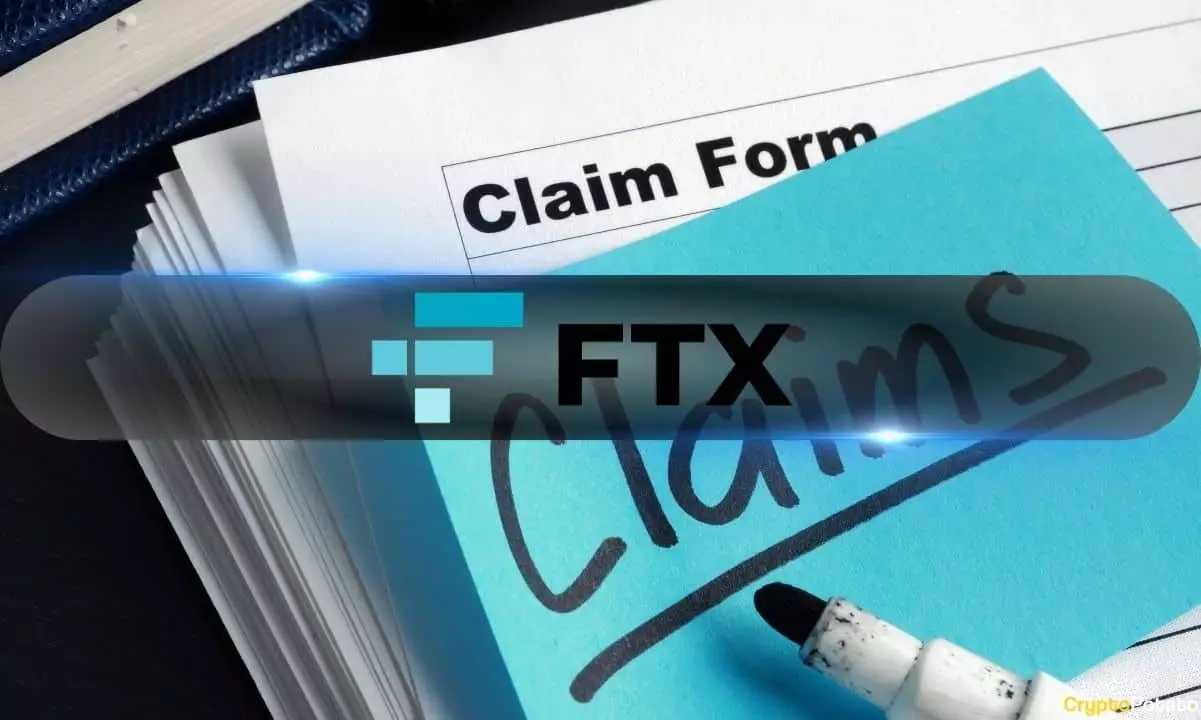The corporate collapse of FTX serves as a cautionary tale, revealing the darker underbelly of unregulated capitalism and the fragility of trust in modern financial systems. As the FTX Recovery Trust gears up to disburse over $5 billion to its creditors by May 30, the slow and painstaking process raises critical questions about accountability, compensation, and the very structure of our financial markets. The discourse surrounding this enormous payout isn’t just a dry recitation of numbers; it is the reflection of despair from those who had placed their fortunes—and faith—into a digital utopia that was anything but.
Class Confusion: An Unjust Hierarchy
FTX’s categorization of its creditors into five distinct “convenience classes” may appear pragmatic on the surface but embodies a troubling dichotomy that resonates with those impacted. While Class 5A creditors will see a significant 72% distribution, others, especially in Classes 6A and 6B, are left navigating the disillusionment of a mere 61%. For the highest tier, Class 7, a staggering 120% payout raises an eyebrow, prompting skepticism around who exactly benefits most in a situation fueled by collective suffering. Such arbitrary divisions among the constituencies of this fallen giant echo broader societal inequities and question the very ethics of how financial distress should be addressed.
John J. Ray III, the entity orchestrating this elaborate refund process, lauds the distribution as a significant milestone. However, one must wonder: what milestones are truly meaningful in the face of devastating loss? The very act of celebrating a recovery plan seems dissonant when juxtaposed against the backdrop of ruined livelihoods, families torn apart by economic despair, and opportunities lost in a financial landscape riddled with deception.
Redefining Trust: The Cost of Convenience
With the selection of distribution service providers like Bitgo and Kraken, a profound critique emerges against the façade of consumer convenience. Eligible parties will find themselves forfeiting direct rights to recovery in exchange for expedited service. In what universe does relinquishing one’s autonomy equate to enhanced recovery? This scenario starkly contrasts with the foundation of crypto investing that once promised empowerment through decentralization. It feels bitterly ironic that customers who believed in a revolutionary financial future are now ensnared in a system bound by the very gatekeepers they sought to escape.
While expediency might be appealing to some, we should question if sacrificing direct relationships with the bankrupt exchange truly serves the best interest of the stakeholders. The transactional nature of this redistribution could become a litmus test, exposing how convoluted the landscape of digital assets can be, ironically perpetuating the very vulnerabilities that led to FTX’s downfall.
The Value of a Cryptocurrency: A Flawed Paradigm
As discussions about the repayment model heat up, critics note the impracticality of basing reimbursements on crypto values fixed during the time of bankruptcy. This model ignores the volatility inherent in cryptocurrencies, ultimately leaving many creditors receiving less than what their holdings would command today. It raises disturbing ethical questions about fairness and valuation in a realm where value is anything but static. How can those responsible for managing the recovery of funds justify applying outdated valuations when the market continually evolves?
Moreover, the complexities surrounding claims filed by NFT Stars Limited and Delysium add layers of intrigue and uncertainty. The battle against external entities withholding assets seems more like a desperate grasp than a proactive approach to genuine recovery. If the FTX estate is seeking to reclaim funds while simultaneously disbursing billions, we can’t help but question whether this is a smart strategy or a pie in the sky.
Can We Find Redemption? The Road Ahead
Despite the recovery announced, FTX’s saga is far from over. As we sift through the numerous lawsuits and ongoing legal complexities, one must ponder whether redemption is achievable for those wronged. The path to restitution involves not only financial reparation but also the restoration of trust in a fundamentally broken system. The challenge, however, is monumental. As public trust in financial systems dwindles, will the fallout from FTX act as a catalyst for changing regulations in the crypto space? Or will history repeat itself, and will other crypto enterprises skirt the edge of ethical financial practices, riding on the coattails of this cautionary tale? The answer lies ahead, and the stakes couldn’t be higher for the future of crypto capitalism.

